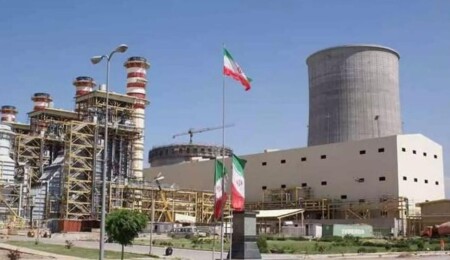US Intel says Strikes did not Destroy Iran Nuclear Program

A classified preliminary U.S. intelligence report has concluded that American strikes on Iran set back Tehran's nuclear program by just a few months — rather than destroying it as claimed by President Donald Trump.

U.S. media on Tuesday cited people familiar with the Defense Intelligence Agency (DIA) findings as saying the weekend strikes did not fully eliminate Iran's centrifuges or stockpile of enriched uranium.
The aerial bombardments and missile strikes sealed off entrances to some facilities without destroying underground buildings, according to the report.
U.S. media coverage of the DIA assessment appeared to anger Trump, who insisted news outlets like CNN and The New York Times were out to "demean" the military strike by saying it only set back Iran's nuclear program by a few months.
"THE NUCLEAR SITES IN IRAN ARE COMPLETELY DESTROYED!" Trump posted in all caps on his Truth Social platform.
White House Press Secretary Karoline Leavitt confirmed the authenticity of the DIA assessment but said it was "flat-out wrong and was classified as 'top secret' but was still leaked" in an attempt to undermine Trump and discredit the military operation.
"Everyone knows what happens when you drop fourteen 30,000 pound bombs perfectly on their targets: total obliteration," Leavitt posted on X.
Trump's special envoy to the Middle East, Steven Witkoff, appeared on Fox News to trumpet the White House version.
"The reporting out there that in some ways suggests that we did not achieve the objective is just completely preposterous," he said Tuesday.
Witkoff repeated the assertion that the nuclear facilities at Natanz, Isfahan and Fordo had been "obliterated."
"All three of those had most if not all of the centrifuges damaged or destroyed," he said. "In a way it will be almost impossible for them to resurrect that program for — in my view and in many other experts' views who have seen the raw data, it will take a period of years."
U.S. B-2 bombers hit two Iranian nuclear sites with massive GBU-57 bunker-buster bombs over the weekend, while a guided missile submarine struck a third with Tomahawk cruise missiles.
Trump called the strikes a "spectacular military success" and said they had "obliterated" the nuclear sites, while Defense Secretary Pete Hegseth said Washington's forces had "devastated the Iranian nuclear program."
General Dan Caine, the top U.S. military officer, has offered a more cautious tone, saying the strikes caused "extremely severe damage" to the Iranian facilities.
Iran's government said Tuesday it had "taken the necessary measures" to ensure the continuation of its nuclear program.
"Plans for restarting (the facilities) have been prepared in advance, and our strategy is to ensure that production and services are not disrupted," the head of the Atomic Energy Organization of Iran, Mohammad Eslami, said in a statement aired on state television.
An adviser to Iran's supreme leader Ayatollah Ali Khamenei meanwhile said his country still had stocks of enriched uranium and that "the game is not over."
Israel launched an unprecedented air campaign targeting Iranian nuclear sites, scientists and top military brass on June 13 in a bid to set back Tehran's nuclear efforts.
Trump had spent weeks pursuing a diplomatic path to replace the nuclear deal with Tehran that he tore up during his first term in 2018, but he ultimately decided to take military action.
The U.S. operation was massive, with Caine saying it involved more than 125 U.S. aircraft including stealth bombers, fighters, aerial refueling tankers, a guided missile submarine and intelligence, surveillance and reconnaissance aircraft.
Source: Reuters


Comments
Attention!
Sending all kinds of financial, legal, criminal, administrative responsibility content arising from illegal, threatening, disturbing, insulting and abusive, humiliating, humiliating, vulgar, obscene, immoral, damaging personal rights or similar content. It belongs to the Member / Members.